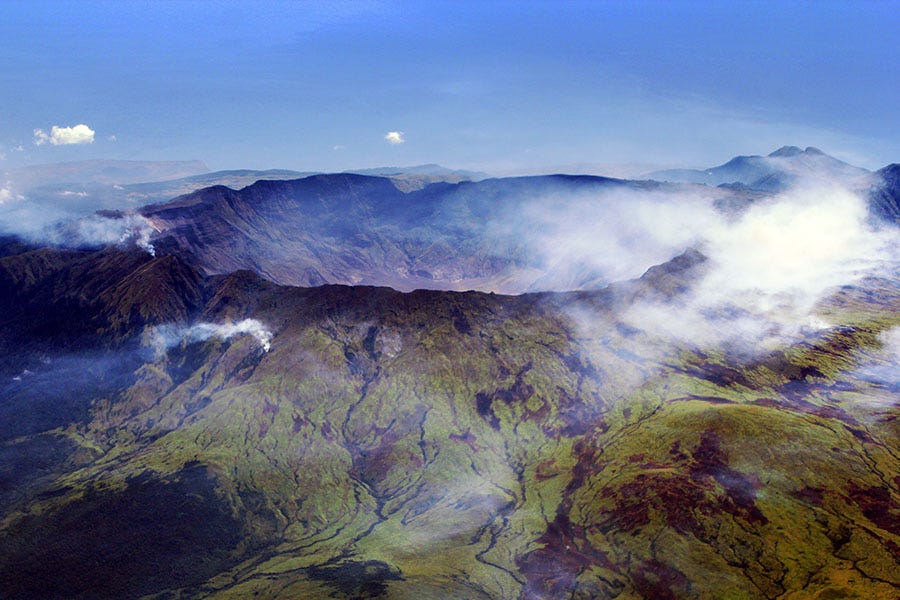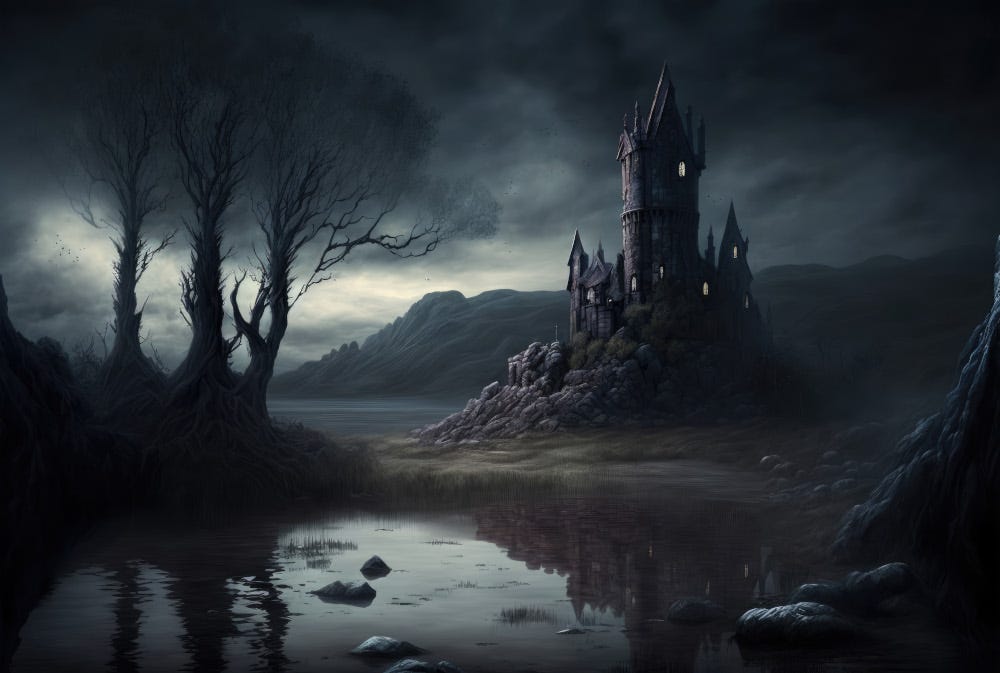This summer has been a doozy. Extreme heat and ridiculous humidity have beaten me down since early June. 🥵 And I’m not alone. I think it’s made people extra cranky. Very possible, though I’m not admitting anything, me too.
I’m still cranking away getting through work since The Great Data Debacle. During breaks, I’ve been thinking a lot about writing and summer. What unusual trinkets and tidbits of information could I sprinkle into a summer set story? Into research mode I went. Then I happened upon the Year Without a Summer.
In April 1815, Mount Tambora, on the island of Sumbawa in present-day Indonesia, erupted. It’s considered the most powerful volcanic eruption in recorded human history. It spewed ash and volcanic matter for over four months.
10,000-11,000 people died from direct volcanic effects, and 49,000-90,000. More died from post-eruption famine and epidemic diseases on Sumbawa, Lombok, and Bali.
The ash dispersed around the world and lowered global temperatures. This triggered extreme weather and harvest failures around the world. The sun disappeared, hidden by ash. Global temperatures dropped by three degrees. Summer temperatures in Europe were the coldest on record. This created major food shortages as crops failed across the Northern Hemisphere.
Gloom. Doom. Rain. Bleak, dark days loomed.
But writers wrote.
Lord Byron wrote Darkness, which begins,
I had a dream, which was not all a dream. The bright sun was extinguish’d…
John Polidori wrote The Vampyre.
Mary Shelley wrote Frankenstein.
And that’s what I learned this summer.
Caldera photo by Jialiang Gao (peace-on-earth.org), CC BY-SA 3.0, via Wikimedia Commons
Dark Caslte from Vecteezy






The psychological effects of what's happening in this increasingly hot world are going to be as significant as the physical ones.